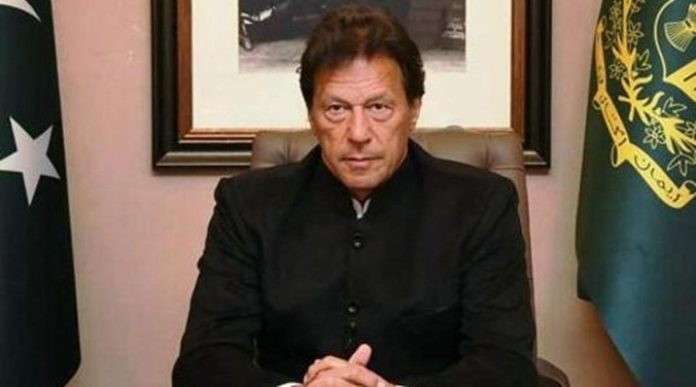(COLUMN)
Over the last several months, Pakistan Prime Minister Imran Khan has been displaying audacious fascination for Turkish President Recep Tayyip Erdogan.
While that is visible, the unseen part is his effort to emulate Erdogan’s style of undercutting the Army. And that is where the former Pakistani cricketer risked hit-wicket.
The all-powerful Pakistan Army has already given warning signals to Imran Khan, if the recent developments like the Senate elections are any indication.
In the tightly and hotly-contested Senate election for Islamabad seat last week, the candidate of Khan’s Pakistan Tehreek-e-Insaaf party and Finance Minister Abdul Hafeez Shaikh lost to the nominee of 10-party Opposition alliance Pakistan Democratic Movement and former Prime Minister Yusuf Raza Gilani in a close finish.
On the face of it, this may have been an ‘election’ but everyone who understands Pakistan and its systems knows very well that the results of such polls are decided by the Army and its agencies.
So, the result was a subtle reminder by Gen Qamar Bajwa to Khan that ‘nobody in Pakistan messes with the Army’.
After these shivers, Khan will face the next test tomorrow during the election for the Senate Chairman.
In this election, the ruling party’s Sadiq Sanjrani will be facing the challenge from Gilani, who is the joint candidate of PDM.
Going by the current position in the 100-member Senate, the odds seem to be in favour of PDM which has 53 members while the ruling alliance has 47.
Hence, the key is with the Army. If it ensures Sanjrani’s re-election, it will kill two birds with one stone.
Firstly, Sanjrani hails from Balochistan, where Pakistan Army has been at the receiving end. His victory may help assuage the sentiments of the people of Balochistan, where increasing number of youth are taking to arms to fight for independence from Pakistan.
Secondly, it would again demonstrate the Pakistan Army’s skill of making the impossible happen in the country’s politics.
But why did the Army have to give shocks to Khan, who has been seen as a Prime Minister “selected” by the military establishment itself two and a half years back?
Khan, taking cue from his Turkish role model, has been trying in the recent months to break away from the Army’s shackles to prove his own mettle.
Khan’s uneasy squealing was evident during his visit to ISI Hqrs in November last year when he said, “The Army hasn’t (directed) me to do one thing which I did not want to do. I would have resisted to the Army if they exerted pressure on me. The entire foreign policy (being implemented today) is mine, you can check with the PTI’s manifesto”.
Similarly, in his speech at Seerat-ul-Nabi conference in October a month prior to that, an attempt to dismiss military commanders as expendable commodities was noted. He cited the famous example of Hazrat Omar’s decision to remove his ‘Sipahsalar’ (commander-in-chief) Khalid Bin Waleed saying, “Sipahsalar ko hatane se fark nahi padta (Nothing happens if the commander-in-chief is removed).”
Khan’s attempt to emulate Erdogan may be because of the similarities of situations that they have witnessed.
In their early days of political career, both have seen the national politics crumble under the thumb of military dictators.
In Turkey, Erdogan witnessed an upswing after the military coup of 1980, becoming Islamist Welfare party’s Beyoğlu district chair in 1984 & eventually landing into the shoes of a ‘Neo-Dictator’ with complete control over the military.
Khan also has been pushed to the wall by Pakistan Army’s overarching dominance & authority in every aspect of statehood. Having been seen as an ‘Army puppet, Khan apparently desires to establish himself as Pakistan’s supreme leader with the status well above the Army & ISI. This is where the emulation of Erdogan’s footsteps comes.
Another link that conjoins them is the ‘Great Ottoman’ dream, an idea that Erdogan has been preaching since his inception in power. The same sentiment has been very forcefully replicated in the TV series “Ertugul” too.
Khan, by his own admission, enjoys Turkish historical television dramas and has been openly urging Pakistan’s citizens to watch them to learn “Islamic values” and “culture”.
Gen Bajwa, sensing that Khan is trying to break loose, clearly thought of teaching him a few lessons so as to make him fall in line again.






